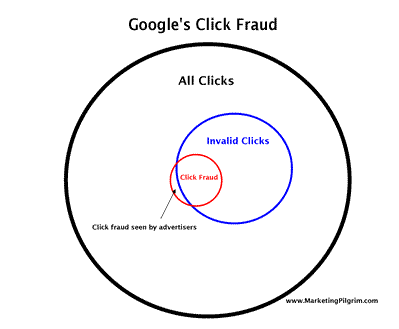Archive for January, 2008
Enquisite Pro - Coming Soon!
I’ve just started providing people outside the office sneak previews of the new Enquisite Pro. While it’s not yet completely finished, and we still have some cool new features, reports and functionality to add, everyone I’ve shown it to has been blown away.
What’s coming? I could give you a list like…
- New interfaces - intuitive, flexible and a lot easier to understand
- Additional functionality - Let’s say you only want to track the NY, NJ, and CT. Now you can. Oh, and it’s easy to do
- Flexible time periods. Whatever period you want, you can view it
- More ways to view your information
- a whole lot more
But that would be understating the changes.
We’ve spent a lot of time architecting the underlying technology. Shortly you’ll start seeing the results.
Analytics shouldn’t just be about reporting. It should help you do your job better. Enquisite Pro will help you turn data into action.
Web Analytics World
Manoj Jasra who writes the Web Analytics World blog. Recently, he invited me to start contributing to the blog, and today I made my first post there.
I’ll try and post there regularly, and am also going to strive to post more regularly here at my own blog as well. No, that’s not a New Year’s Resolution. I don’t make those.
Today’s first post draws on some information I used in explaining User Behavior at the SES Chicago and SES Paris shows recently. Basically it’s all about the value of being found on page one within the search results.
Please read the post, and think about it. Are you paying (or charging) a fair price for your SEO services?
Looking at the data, I think it’s pretty easy to argue that SEO’s are not being properly compensated for getting sites into the top 10 for meaningful, competitive key phrases. Not when you compare the cost per click on PPC v. SEO.
A Step Towards Solving PPC Click Fraud Concerns: PPC Assurance from Enquisite Search Analytics
We put out a Press Release earlier today about the automated PPC refund claim submission process that we’ve added to PPC Assurance.
Apart from what’s in the release, here’s what’s notable:
Until now, if you’ve wanted to file a claim with Google or Yahoo! for an error in the way your PPC campaign executed, it was a nightmare process. You had to dig through log files, run whois and geo-lookups against IP’s, check times, etc. In short, it was virtually impossible.
PPC Assurance solves that. One click, and your PPC claim is submitted.
So why did we build it?
When advertising came to radio, a company called Arbitron emerged. They hired scores of people to listen to the radio all day, and mark down which ads ran when on which station. They compiled the data, and provided the information back to the ad networks, and advertisers. They provided an audit and verification service so that advertisers would be able to ensure that they ads they booked to run on particular stations in NYC, at certain times of day, and days of the week, ran as promised. Straightforward business best practices. Buy an ad, have a means to find out that you got what you paid for.
When advertising came to television, Nielsen offered the same service for TV advertisers as Arbitron had for radio advertisers. As with radio, the various networks cooperated with advertisers.
Independent verification is a good standard business practice. In traditional advertising, it’s been around for quite a while. But until now, it’s not been offered to Internet advertisers.
PPC Assurance fills that gap. It’s fully automated, so monitoring your campaigns is easy.
The value in an audit is in verifying what’s happening. We like to say, we help you know every click. We give you an additional benefit. It’s a bonus. Just knowing if things are fine is important. Having the ability to do something about it when things go awry is what the automated refund claim submission process is all about. Press one button, and file the claim with Google or Yahoo! They want to know when things go awry, and this is how you let them know.
In further posts we’ll examine the process after you file a claim. The engines don’t automatically just write you a cheque back, but our clients have been successful.
That’s a key point. Our clients have received money back from claims they’ve filed. We know we can help you too.
SES Paris
Last week I had the pleasure of attending, and presenting at SES Paris. It was held on January 15, 16, 2008, and somewhere in excess of 200 people were there.
The conference was broken into two tracks, and with one exception - Search Around the World, everything was done in French. I had the honor of being the only presenter for the Click Fraud & Campaign Audit Session. 1:15 minutes of presentation, and Q&A, all in French. That was fun, and I’ll admit I was nervous, but people told me they learned at lot.
This conference was very different from most of the other search conferences I’ve participated in, as in every session, the Q&A periods were much more active than usual. There was no shortage of audience participation. I think almost every session ran late due to overwhelming response in the Q&A. I’d say from a participants perspective, SES Paris was very successful. I don’t have firsthand knowledge of previous SES Paris shows, so I can’t compare them beyond mentioning that attendees who had been there in previous years said this one was a step up.
I also moderated four other sessions. They were a lot of fun. Here’s a quick summary of all the sessions. First off, day 1:
1) Optimiser son site pour les moteurs de recherche
This is the standard SES Fundamentals track session on how to optimize a web site. There were four presenters Maxime Grandchamp from Trellian Europe, Rodrigo Sepulveda Schulz from vpod.tv, Didier Durand from Publicitas, and David Cohen from CVFM. Their various presentations were strong and to the point. Lots of good questions, it went off smoothly.
2) Meandres de la Recherche Universelle
The universal search panel. I was particularly interested in this one as I’d presented on the topic at SES Chicago and SES San Jose in 2007. This time out it was a European perspective on the subject. The presenters were Jean Veronis, a professor from Universite Aix-Marseille, Philippe Yonnet from @position, and Sebastien Billard from Relevant Traffic. Jean Veronis’s presentation about the history of search leading up to Universal Search was interesting, and his slides on what he thought Universal Search results should look like unique. Philippe & Sebastien’s presentations were more about the implication of Universal Search for SEM’s. I threw in a couple of slides at the end which showed some additional data. I’m going to use that info in a post at another blog this week. It’s been sitting in the can for 2 weeks, and I’m way behind in posting there. The Q&A was solid.
3) Clinique - “Optimisation de site web”
The always entertaining site clinic. This was a blast. We had David Degrelle from SEMPO & 1e Position, Walid Elias Kai from Google-Kai, and Yann Lemort from Pole Positioning. A lot of times in site clinics people are shy about having their site critiqued. Sometimes we even ask people to put up a competitor’s site so that they can get insights, and observe some opportunities. Not here. No one was shy. (this seemed to be quite standard in Paris, no one was shy!). We had people putting up sites they had built, new clients, problem clients. It was great, and I think people learned a heck of a lot.
On Day 2 of the conference I did the Click Fraud session, and moderated one other;
4) Click Fraud - clics frauduleux.
This was fun! I was the only speaker on click fraud (and the moderator). I tried to give a very balanced view on the issue, and recounted data that’s been publicly used at conferences and in discussions, as well as information we’ve discovered in our analysis. Then I focused on auditing your PPC campaigns, and ways to minimize your exposure to click fraud. I think this is an important point. Google and Yahoo! overwhelmingly represent the majority of the PPC marketplace. They offer great tools which allow you to minimize your exposure to Click Fraud, by really tightening down your campaign parameters. Unfortunately, most people don’t take advantage of these tools. I did quote from Andy Beal’s article from Click Fraud last year, using this chart to explain Google’s view of how prevalent Click Fraud is, and how it overlaps with invalid clicks;
To add a little humor to a topic which is both serious, and dry, I mentioned that this chart looks oddly similar to another image in common culture which is doubtlessly recognized by many of us. Ironically, this comparison brings a whole new perspective to “do no evil.” Certainly an unwitting comparison.
5) Strategies d’echanges de liens en 2008
Linking strategies. I had the always entertaining David Degrelle on this panel again, along with David Durand-Pichard an independent blogger, and Aurelien Bardon from Atregos, Of course some of the discussion dealt with the paid links update from last year. There’s still a lot of confusion on that, and and many people commented on how they got whacked and don’t sell or buy links. Of course, bugs are being worked out, but some people are still getting hurt. Good info on link-baiting, and David Degrelle tood a picture from the stage which he said he’ll blog about to get link bait from the audience. Similar questions to the ones we get in the U.S., but in my discussions with participants it appears that simpler techniques still work well, as the markets smaller, and not quite as competitive. I found this interesting, as it presents an opportunity as well.
This last session ended the conference for me.
Outside of the sessions, participant feedback and general observations, I enoountered quite a few people making negative comments about Google. I was surprised, but also found them interesting. On the one hand the French love Google. Our own data shows the Google’s marketshare there dwarfs shares in many other markets. All the marketers in the sessions just seem to use Google, and Google’s tools for research; in fact, they don’t really seem to use the other engines’ tools, or at least they didn’t mention them. For link analysis in particular I found this quite surprising, but I understand that each market is different, and habits are habits. Quite strange. I wasn’t quite sure what to make of it. The people supported Google, use Google, yet also somehow resent it.
In summary, was SES Paris worth it? If you wanted to learn a lot about SEO & PPC strategies, management and issues, definitely.

